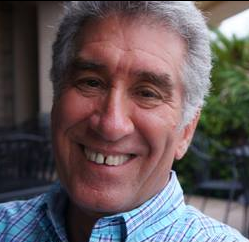(Note: As I have done in past elections, I am running a series of Q&As for Democratic judicial candidates on the November ballot. This is intended to help introduce the candidates and their experiences to those who plan to vote. I am running these responses in the order that I receive them from the candidates.)
1. Who are you and what are you running for?
I am James Horwitz. I have operated my own law firm for 37 years in Houston, Texas. I am the Democratic candidate for Judge in Harris County Probate Court No. Four (4).
2. What kind of cases does this court hear?
Unfortunately as we all learn sometimes too soon, life is finite and will ultimately end in death. Additionally, age, diseases, and injuries impact our abilities to be self sufficient. Our society, as represented by our legislature, determined that for these reasons, all of us could use assistance in managing some or all of our daily affairs and ultimately our estate after our death. These activities are often managed by the intervention of Probate Courts. The Texas Constitution grants the Texas Legislature the authority to determine which court handles probate matters. As a result of the efforts of our Texas Legislature, 10 of the 15 largest counties (specifically including Harris County) have Probate Courts. These Probate Courts handle matters of:
(i) probate (with or without Wills)
(ii) guardianship issues,
(iii) issues regarding trusts; and
(iv) the determination of involuntary commitments of individuals to mental health institutions
3. Why are you running for this particular bench?
I believe my experience as a lawyer best matches up with that of my opponent. I began practicing law in 1977. The 4 existing probate judges were licensed respectfully in 1973, 1980, 1982, and my opponent in 1997. My law practice is now spent helping families cope with aging and the transitions required in moving assets between generations. My varied background beginning with my social work experience and legal work with the general public involved in business as well as the court system provides me with the tools necessary to be a judge in probate court.
4. What are your qualifications for this job?
There are no short cuts to experience and especially wisdom. I have practiced law for thirty seven (37) years, more than twice as long as my opponent. Before that I was a social worker working with families in crisis. When I began my legal practice, my opponent hadn’t even begun first grade. Experience counts. For thirty-seven (37) years, I have represented thousands of clients in estate planning and probate court as well as at all levels of the civil, criminal, family, and juvenile courts in Harris County, Texas, including also a multitude of other jurisdictions in Texas. Wisdom counts. My sound judgment has been gleaned from nearly four decades of work providing assistance to individuals and their families through my dedication to quality, my understanding of the foibles of people, and my understanding of the law. My experience and wisdom is the result of working, now in my fourth decade, with the grieving, the divorced, the criminal, and the incompetent – all of which provides me with a unique perspective to understand and address the needs of those that come before me as a judge in probate court.
5. Why is this race important?
Everybody sooner or later is involved in probate court-as the deceased, the heir, the guardian, the ward, and/or a creditor. Every family is different and in the next 4 years the definition of what is a family is going to expand. Our society and our community needs individuals with a varied and balanced background as judges to make a fair and impartial decision based on the facts every time, balancing the needs of the individual versus the needs of society.
6. Why should people vote for you in November?
Voters in Harris County should vote for me to bring an independent voice to the Probate Courts utilizing the law and fairness with compassion. Judges should be impartial but not isolated. Judges are elected from the community and Judges should be involved in the community. It is the civic duty of all elected officials to not only do their job well, but also to educate the public relevant to the governmental functions in their office. I believe one of the obligations of the job of probate judge is to educate the public on the methods by which individuals can use self reliance and simple actions in order to maximize their decision making on their own well being and estates so that the government role’s is minimized as to determining the most personal decisions in a person’s life. That is why I will speak to all interested groups on these topics now and when elected. I will follow Texas law as I know it with the utmost regard to the Constitution of the United States. I need your vote.

